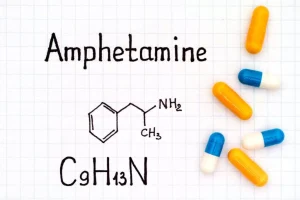
Research has shown that those who begin drinking between the ages of 11 and 14 are significantly more likely to develop alcohol addictions than those who have their first drink at age 19 or later. Environmental influences are other components that can lead to alcohol addiction, either singularly or as they interact with other factors. These can be related to childhood or upbringing, family environment, social situations, or with a significant other. Treatment for alcoholism typically involves a multifaceted approach that addresses the physical, psychological, and social aspects of the disease. Detoxification, often the first step in treatment, helps individuals safely withdraw from alcohol under medical supervision.
Unveiling the Genetic Link to Alcoholism
One of the largest twin studies on alcoholism done to date was performed by researchers at the University of Queensland and the University of Washington, Psychology Today reports. This study showed a genetic predisposition of 50 percent in male identical twins and 30 percent in female twins. It is still held that genetics accounts for about half of the risk of alcoholism. Environmental, behavioral, and social aspects are thought to account for the other half.

Crisis Support Resources
This risk is considered hereditary and may be passed down to you if you have a family history of AUD. High levels of stress in the environment, a lack of family support and engagement, and peer pressure can make a person more susceptible to engaging in patterns of problematic drinking that can lead to alcoholism. You can also speak with your doctor or a mental health care provider if you have concerns about the likelihood of becoming an alcoholic when alcoholism runs in the family.
Other Genetic Factors For Developing AUD
Just as risk factors increase your chance of experiencing a condition, protective factors lower your risk. Some protective factors, such as natural optimism, may remain fixed over time. Other factors, such as friend groups and level of financial security, may be subject to change. The more genetic factors you have, the higher your risk may be of having AUD.
Can a Person Be Born with an Alcohol Use Disorder?

In addition, a fruit fly’s resistance to alcohol appears to be controlled by is alcoholism inherited the same molecular mechanism as humans. If exposed to alcohol at a young age, you’re more likely to develop AUD, especially if you start drinking at 15 or younger. Your genetics don’t only increase your risk of AUD — they may have protective elements as well. According to the DSM-5-TR, the more relatives you have living with AUD and the closer they are to you in relation, the higher your individual genetic risk becomes. Lowering stress levels naturally and surrounding yourself with people who are supportive of sober habits or moderate drinking can be beneficial.


The American Association for Cancer Research publishes that the Research Council on Problems of Alcohol was established to try and figure out a scientific link for the effects of alcohol on humans. Jellinek was the executive director and became the first director of the Center of Alcohol Studies at Yale in the early 1940s. Jellinek was instrumental in establishing alcoholism as a disease with scientific considerations, per the Journal of Studies on Alcohol and Drugs. “Genetic polymorphism in ethanol metaboli…abuse and alcoholism.” Molecular Psychiatry, May 26, 2004.
- Getting treatment for a family member who suffers from alcohol use disorder is paramount for them to be healthy long-term.
- This suggests that genetic factors contribute to the development of alcoholism, as identical twins share 100% of their genetic material, while fraternal twins share only about 50%.
- Researchers at the University of California at San Francisco (UCSF) are using fruit flies to find the genetic causes of alcoholism.
- Research has shown that individuals with a family history of alcoholism may be at an increased risk due to shared genetic vulnerabilities.
- However, it was dramatically higher among the twins whose biological fathers were alcoholics, regardless of the presence of alcoholism in their adoptive families.
Understanding Alcoholism
However, it was dramatically higher among the twins whose biological fathers were alcoholics, regardless of the presence of alcoholism in their adoptive families. It is no secret that the genes we inherit from our parents determine simple physical traits such as hair color and height. That comes down to a mixture of certain genes, which include a randomness component related to the allele—or gene variant—we inherit. But when it comes to more complex human features, the connection to our genes is less clear.
Alcohol Addiction And Genetics
- Any use of alcohol is not recommended if an underlying mental health condition is present, and overuse of alcohol should be considered a huge warning flag for the development of progressive alcoholism.
- While genetics may increase an individual’s vulnerability to alcoholism, it is crucial to remember that they do not determine one’s destiny.
- Researchers found that six to eleven percent of the phenotypic variation—referring to differences in what physical and behavioral traits are expressed—could be explained by genetic information.
- Other genetic factors and environment likely play a bigger role than any single gene in whether or not a person develops AUD.
- If you spend time around people who drink often or who don’t discourage heavy drinking, you may be more likely to develop alcoholism yourself.
- One such gene is the ADH1B gene, which encodes an enzyme involved in alcohol metabolism.
This finding suggested to researchers that the risk variants promoted certain brain pathways that contribute to the development of behavior patterns and disorders. Researchers found that six to eleven percent of the phenotypic variation—referring to differences in what physical and behavioral traits are expressed—could be explained by genetic information. There are several things you can do to minimize your potential risk of developing alcoholism, especially if it runs in your family. NIAAA publishes that one of the biggest risk factors for developing AUD is a pattern of binge and excessive drinking on a regular basis. Endorphins, or lack thereof, may also predispose someone to alcoholism, Medical News Today reports. Endorphins are what make you feel good when you do certain things or eat special foods.
Other factors, such as environmental influences and personal experiences, also shape an individual’s relationship with alcohol. Below, we will explore the fascinating connection between genetics and alcoholism, shedding light on whether alcoholism can truly be considered genetic. “Hereditary” refers specifically to the passing down of traits or conditions from one generation to the https://ecosoberhouse.com/ next through genetic material. In the context of alcoholism, hereditary alcoholism would imply a direct transmission of alcoholism from parents to their offspring due to genetic factors alone.
But while genetics influence our likelihood of developing alcoholism, it’s more complex. A 2018 study also showed that genetic factors account for 40 to 60 percent of the reasons people develop AUD.14 Since that study, specific genes have been identified that link with the development of the disorder. Genetics are responsible for about half of the risk of developing AUD.12 Although AUD is related to genetics, this doesn’t mean there’s a specific gene you inherit that develops the disorder. On the other hand, not having genes linked to alcoholism doesn’t mean you won’t develop an addiction. A review of studies from 2020, which looked at a genome-wide analysis of more than 435,000 people, found 29 different genetic variants that increased the risk of problematic drinking. Scientists have found that there is a 50% chance of being predisposed to alcohol use disorder (AUD) if your family has a history of alcohol misuse.


